Staggering rise: Donald Trump hits home amid Americans’ abysmal confidence in their institutions
For many voters, Donald Trump’s resurgence is their retribution against the hated elites.
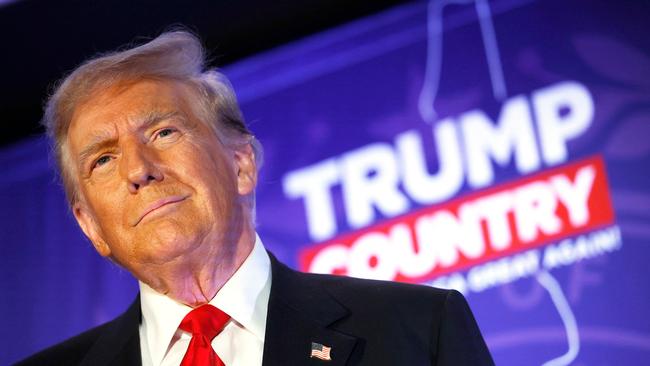
But after his thumping victory earlier this week at the Iowa Republican caucuses, those same bookies give the former president a 41 per cent chance of winning a second term, where incumbent Joe Biden was last April before dwindling to 29 per cent.
Even if Trump ultimately loses, his renaissance has been staggering, especially in light of his four indictments, including 91 criminal charges, by state and federal courts for election interference and separate civil cases in New York related to alleged sexual abuse decades ago and business fraud.
Richard Nixon, who won more than 60 per cent of the popular vote in 1972, the biggest in US history, but resigned less than two years later in the wake of the Watergate scandal, wasn’t formally charged with anything yet couldn’t have even dreamt of a comeback. In aggregate, the seriousness of Trump’s alleged crimes are surely worse.
On top of his legal woes, his campaign rhetoric appears almost designed to infuriate and scare sections of the electorate: his political enemies are “vermin”, migrants are “poisoning the blood” of the country, the constitution should be “terminated”. The list goes on.
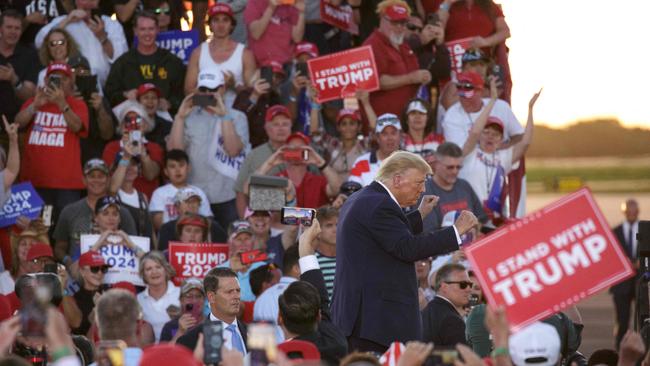
“For those who have been wronged and betrayed … I am your retribution,” Trump said back in March at a Texas rally, fuelling fears among many that a second Trump presidency would weaponise the federal government to pursue enemies. In December he even said he would be “dictator for a day”, deviating somewhat from the usual anodyne slogans that pepper political discourse.
Trump’s ascent reflects not so much his political brilliance but the absolute contempt an increasing share of Americans have for the nation’s institutions, or what might be called the commanding heights of the 21st-century economy – the media, the universities, the bureaucracy, the C-suite of large corporations and, increasingly, even the judiciary. If you hated these institutions, and these same institutions loudly and relentlessly denounced a particular political candidate, what would the natural response be?
Trump’s emerging comeback, as he has insightfully noted, would indeed be their retribution.
As economist Bryan Caplan once argued in his book The Myth of the Rational Voter, people don’t vote rationally, they vote emotionally. The flurry of indictments and criminal charges laid against Trump, cheered on by the leading members of the American elite, only draws more and more Americans into supporting him as he casts himself as “the most persecuted person in American history”.
He’s probably right: many of the 91 criminal charges are obviously politically motivated, many relying on arcane interpretations and contortions of the law that have no precedent. They all emerged long after the alleged crimes occurred, only after his announcement in November 2022 of a third White House run.
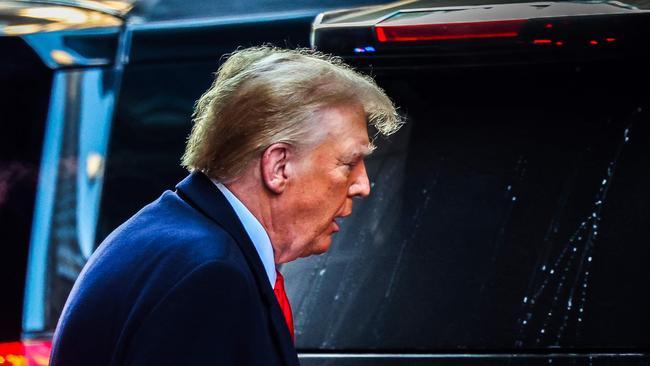
Trump, a registered Democrat for many years who mixed easily in liberal Manhattan society, has harnessed these forces to extraordinary effect. He has made himself the unlikely champion of a silent and furious American majority. The more he’s attacked by loathed institutions, the stronger he becomes. No wonder he likes to attend his trials, earlier this week daring a New York judge to kick him out of the courtroom: “I would love it,” he said.
They are far more effective campaign events than trudging around Iowa, which he barely visited compared with his chief rivals for the Republican presidential nomination, Nikki Haley and Ron DeSantis.
Moves to remove the former president from the ballot in Colorado, Maine and other states – likely to be struck down by the US Supreme Court next month – highlight the institutional bias against him further.
The decline in respect for American institutions is broad and deep. The percentage of Americans who say they “trust the government to do what is right just about always/most of the time” has fallen from 77 per cent during Lyndon Johnson’s administration in the 1960s, to 44 per cent during the Ronald Reagan years in the 1980s, to 16 per cent at the end of last year. Interestingly, confidence crept up a little during the Trump years, reaching 24 per cent in 2020, according to Pew Research, which has asked this question since 1958.
Americans’ confidence in the mainstream media is equally abysmal, dropping from 55 per cent in 2000 to 32 per cent last year, and reaching 11 per cent among Republicans, which explains the impotence of the relentless mainstream media attacks on Trump. He won a far greater share of the vote in Iowa’s Republican caucuses earlier this week, after eight years of criticism, than he did in 2016.
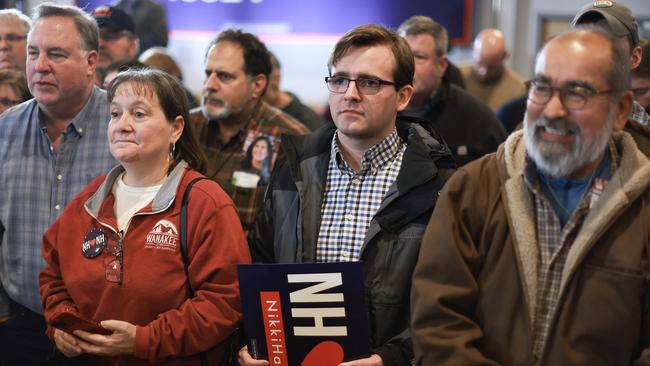
MSNBC, a mainstream news network, wouldn’t even screen Trump’s speech after his Iowa victory, claiming it was “misinformation”. Americans can see how the new media business model, which relies on subscriptions rather than advertisers, has supercharged polarisation further.
Turning to universities, pollster Gallup found last year that only 36 per cent of Americans held their universities in esteem, down from 57 per cent as recently as 2015. Among Republicans it has plunged from 56 to 19 per cent across the same period. And that snapshot was taken before the embarrassing resignation of the heads of Harvard University and the University of Pennsylvania, which revealed the extent to which the ideology of diversity, equity and inclusion, alien to the values of most Americans, became clear.
Why the growing contempt? Americans increasingly see that the most powerful figures commanding the heights, a tiny sliver of the population, are members of the same political party, the Democrats. Media, academe and government once included a far greater share of Republicans, making it much harder to associate one party with the downtrodden and one with the elite.
In 2020, 93 per cent of voters in Washington DC voted Democrat, which makes Canberra look like a marginal electorate. Not only do those who dominate elite institutions vote the same way, they have become relatively much richer, in wealth and income, than the bulk of Americans, large numbers of whom have been left behind by the trade liberalisation of the late 20th century, the long-term impacts of which are being fully felt only now.
At the Iowa caucus I attended on Monday night (Tuesday AEDT) about 30km outside Des Moines, where Trump won almost 60 per cent of the votes, I was struck by the poor health of many of the attendees. On closer inspection many were younger than me but looked years older.

Life expectancy for ordinary Americans has stagnated or even has fallen. The growing socio-economic polarisation of American life, laid bare brilliantly by Charles Murray in Coming Apart in 2012, has become even more pronounced. The generations after the baby boomers have struggled to get ahead, often reaching middle age poorer than their parents. Without a sizeable inheritance to look forward to, prospects for a couple on median incomes in US cities can look pretty grim.
Covid-era regulations, imposed by elites, inflamed the situation further. They were a disaster for Americans lower down the socio-economic chain whose schooling was disrupted, their jobs destroyed ahead of a huge inflation of prices that pushed up wealth inequality and priced many families out of the housing market entirely. No wonder the Democratic Party has become less interested in redistribution, which once animated parties of the left everywhere.
The forces propelling the Trump juggernaut aren’t unique to the US. In Europe, populist parties with leaders who similarly position themselves in opposition to elites are thriving, including Giorgia Meloni in Italy and Geert Wilders in The Netherlands. The popularity of protest parties in Germany and Spain has surged. Rishi Sunak, a scion of privilege, is likely to be thrashed at the next British general election. Marine Le Pen, who admires Trump, may become president of France should she try a third time, polls suggest.
Even in Australia, the share of the population voting for fringe parties has been growing steadily, reflecting dissatisfaction with the increasingly interchangeable leadership of both parties in policy substance, if not style.
In July 2022 I suggested in a column that Trump didn’t have a hope of re-election. “The stench of gross negligence, potentially criminality” would be intense and destroy his campaign. I didn’t realise that Trump was the vessel through which vast numbers of angry Americans would channel their rage with the establishment.



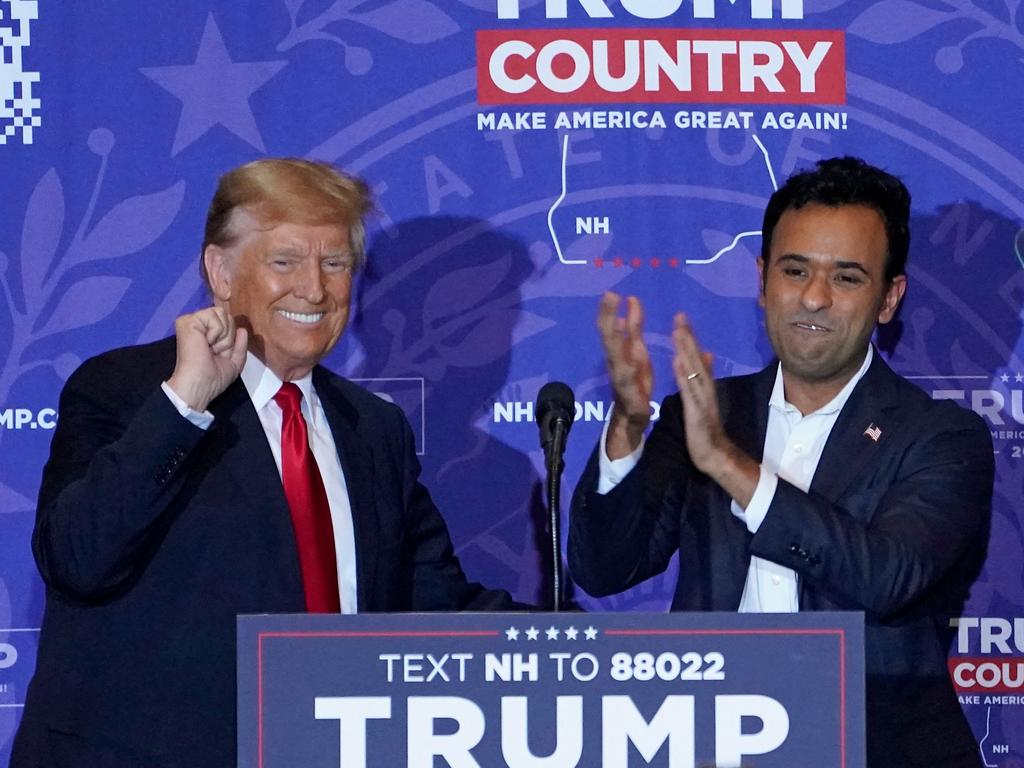
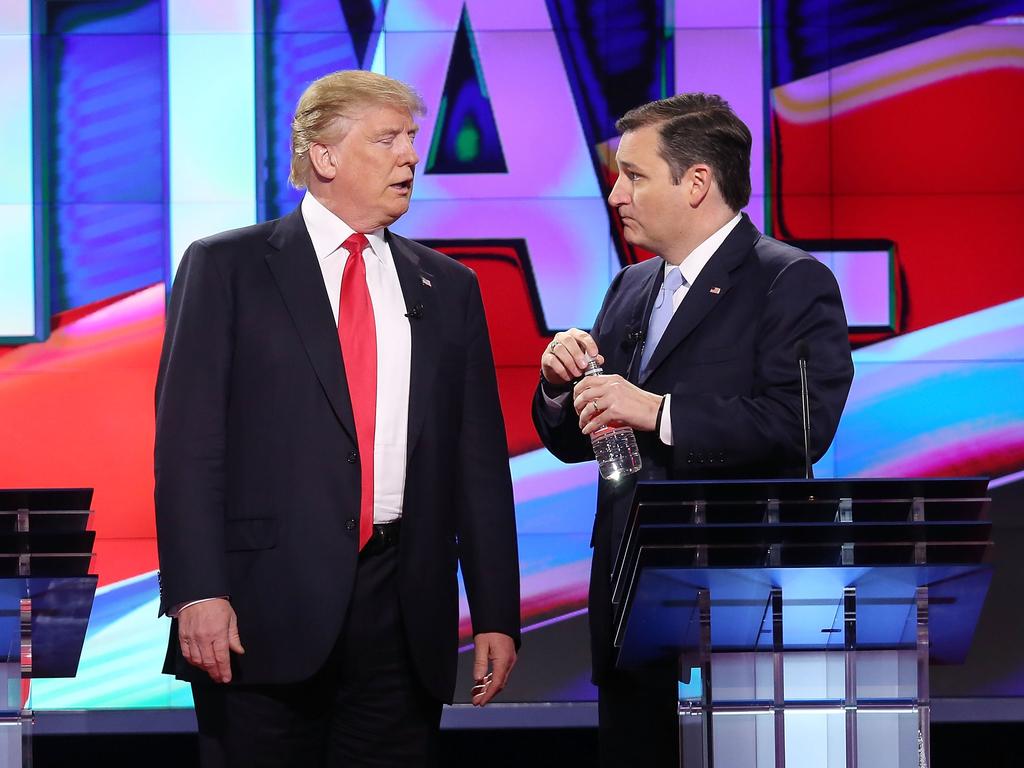
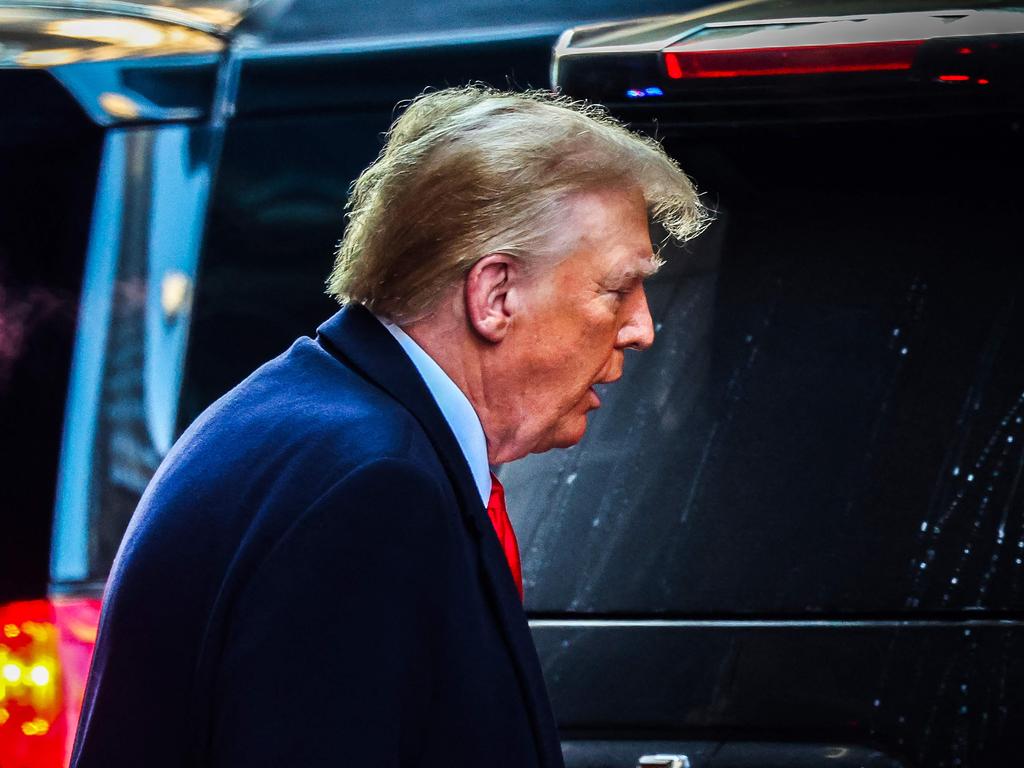


At the start of last year Donald Trump’s chances of becoming president, according to an average of odds offered by six US political betting agencies tracked by RealClearPolitics, was 14 per cent. His tired campaign launch at Mar-a-Lago in Palm Beach, Florida, was mocked, his chances derided by pundits, including me, a few months after Republicans, and in particular his candidates, performed poorly in the November 2022 midterm elections.